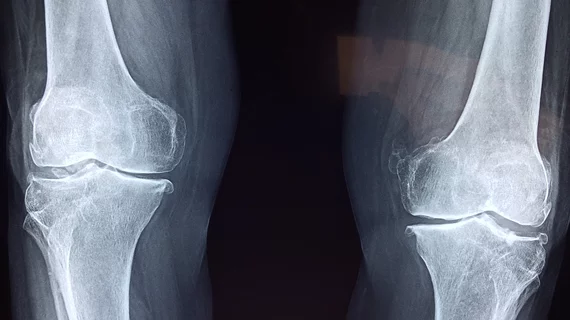AI sees pain points in x-rays radiologists can’t, particularly in Black patients
Artificial intelligence has the unique ability to spot information that doctors cannot, and a new study suggests it may be proficient at reducing racial disparities in osteoarthritis care.
On Monday, Wired detailed a recent study that trained algorithms on tens of thousands of images to specifically look for a patient’s pain level on an x-ray. The AI proved capable of beating radiologists at grading the severity of pain experienced by Black patients.
African Americans are nearly 40% less likely than their peers to receive a knee replacement, Wired reported, even though they have the same odds of suffering osteoarthritis. Income and insurance differences likely play a role, but diagnoses may also be a key factor.
It’s unclear what algorithms know about these knee x-rays that radiologists do not, but Judy Gichoya, MD, MS, a radiologist and assistant professor at Emory University, is creating a more robust study to find out.
“It may be that it’s something we do see, but in the wrong way,” Gichoya told the tech news outlet.
Read the entire story below.

